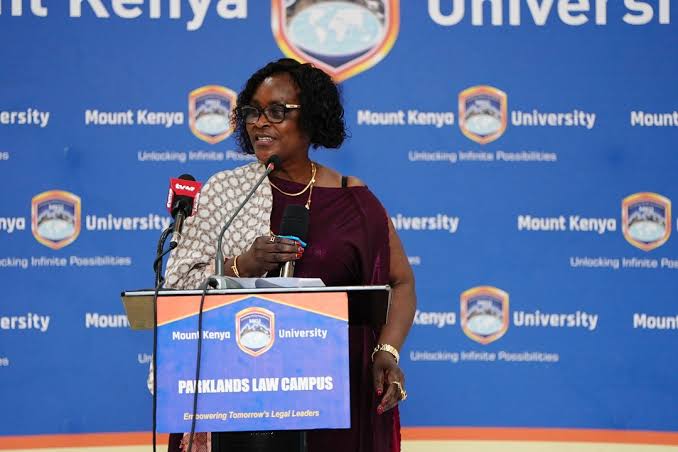Justice Dorah Chepkwony, a High Court judge in Kenya, is currently facing serious allegations of gross misconduct, with concerns about the integrity of the judiciary.
Nelson Havi, a well-known lawyer and advocate for justice, has publicly acknowledged the situation and revealed a complicated personal connection by stating, “You see, the Judge is my relative but this cleanup must go on even if it hurts.” This shows a commitment to holding judicial officers accountable despite family ties.
The complaint against Justice Chepkwony centers on her handling of a specific case, Kiambu HCCHRPET No. E027 of 2023, which is linked to other cases in Milimani courts. The complainant, who is also a relative of the judge, emphasizes the need for justice and transparency, highlighting that personal relationships should not shield anyone from accountability. This speaks to the seriousness of the allegations and the demand for fairness in Kenya’s legal system.
Among the main accusations is the issuance of temporary court orders without a proper supporting petition. This procedural mistake was discovered during a case review, indicating a serious lapse in judicial process.
Additionally, Justice Chepkwony is accused of delaying a ruling on a Notice of Preliminary Objection for an unusually long time.
Despite citing reasons such as lack of electricity and illness, she continued to deliver other rulings during the same period, raising questions about selective delay and fairness. There is also an allegation of forum shopping, where the case was moved from the appropriate Milimani jurisdiction to Kiambu, potentially to get a favorable outcome.
The Judicial Service Commission (JSC) had initiated proceedings against Justice Chepkwony, but the High Court halted these proceedings in March 2025. This legal intervention complicates efforts to address the complaint and has brought more attention to her conduct.
The halted JSC proceedings are the second time such action has occurred, showing that there are ongoing legal battles surrounding her fitness to serve.
Looking back, Justice Chepkwony has faced controversy before. One notable past case involved the Director of Public Prosecutions appealing her decision to acquit a suspect charged with ivory trafficking, criticizing her sentencing as unconstitutional. Although no personal scandals are publicly confirmed, these incidents suggest a history of contested judicial decisions.
The entire situation highlights the urgent need for transparency and accountability within the judiciary. The complainant’s insistence on pursuing justice, even at the cost of family relations, underlines the importance of impartiality in the legal system.
Delays and procedural errors undermine public trust, and the stalled JSC process exposes challenges in handling judicial misconduct.
How this case unfolds will send a strong message about the standards expected of judges and the mechanisms in place to enforce those standards.
Kenya’s judiciary must ensure that justice is delivered fairly and swiftly, without favoritism or delay, to maintain public confidence in the rule of law.



